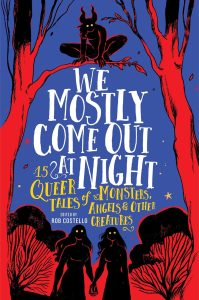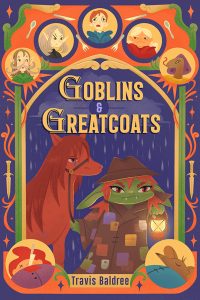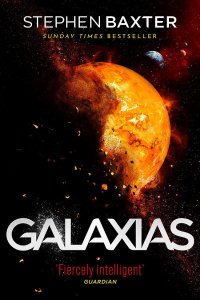We Mostly Come Out at Night edited by Rob Costello: Review by Alex Brown
 We Mostly Come Out at Night, Rob Costello, ed. (Running Press 978-0-76248-319-8, $18.99, 384pp, hc) May 2024.
We Mostly Come Out at Night, Rob Costello, ed. (Running Press 978-0-76248-319-8, $18.99, 384pp, hc) May 2024.
We Mostly Come Out at Night, a new dark fantasy YA anthology, looks at the scarier side of queerness. The anthology opens with editor Rob Costello’s powerful introductory essay about queerness and its relationship to monstrousness, how we as a society and as individuals create monsters to reflect our fears and as a tool to control what terrifies us. He also writes about how we as queer people are made to feel like monsters by the majority and how the majority themselves are often the real monsters in the way they treat us. Those themes – the monstrous queer, the monstrous majority, and how we seek to control that which we fear – run through every story in this anthology.
Costello warns readers in his Editor’s Note that not every story will be for every reader, but I believe every reader will find a story they connect with here. For me it was ‘‘The Girl with Thirteen Shadows’’ by Merc Fenn Wolfmoor. Although the messaging was often heavy-handed, I felt Melanie’s story down in my bones. The story begins with a doctor promising to ‘‘fix’’ her by removing her extra shadows, the things that others make her feel like a monster for having. Her father, who is trans and gay, lets his worry for her safety overwhelm his willingness to let her be who she is. Mixed in with all this is her own burgeoning asexuality (and probably aromanticism as well). She’ll do anything to be seen as normal, no matter how much it hurts, no matter how much she hates it, an experience I know all too well. While I didn’t get murderous revenge on those who tried to break me, it was a long, hard fight to get where I am today.
In Sam J. Miller’s ‘‘Boys Who Run with the Boars’’, a 16-year-old boy in a near-future devastated by an ever-worsening climate crisis moves to what’s left of New Jersey. There, he meets a wild boy with an even wilder name who seduces him into becoming his true self. Kalynn Bayron writes about a teenager in foster care arriving at her twelfth group home in fourteen years in ‘‘The House of Needs and Wants’’. Hope is a thing too distant to even contemplate anymore. No point in getting used to things if she’s just going to get thrown out again. Strange things happen in the new place. She’s living in a haunted house that turns out not to be haunted and that could be the home she always wanted.
Naomi Kanakia takes the real-world experience of being trans in an antitrans society and builds a parallel universe with elves and trolls with ‘‘World-weariness’’. Each story in the anthology ends with a section titled ‘‘Monster Reflection’’ where the author explains their connection to the monster in their story. Kanakia recounts a story she read as a child before she transitioned about a little elven boy who is shunned by his peers but accepted by a troll and how now she no longer worries about things like passing; she revels in her differences, in the things that separate trolls from elves. That is queerness for a lot of us, really. It’s choosing between conforming by cutting out all the things that make you different or building a home out of your differences.
Get this anthology for the queer, monster-loving teen in your life. In a world where many adults would rather a child be dead than queer, where trans people are being forced to detransition and who can be fired and kicked out of their homes simply for identifying how they want to, where acespec and arospec people are targeted by doctors as needing to be ‘‘fixed,’’ where hate groups gain more and more traction, this anthology reminds young adults that their teeth are sharp and their claws are long. They aren’t helpless or bad or wrong. They are monsters in the best way.
-Alex Brown
Interested in this title? Your purchase through the links below brings us a small amount of affiliate income and helps us keep doing all the reviews you love to read!
Alex Brown is a librarian, author, historian, and Hugo-nominated and Ignyte award-winning critic who writes about speculative fiction, young adult fiction, librarianship, and Black history.
This review and more like it in the August 2024 issue of Locus.
 While you are here, please take a moment to support Locus with a one-time or recurring donation. We rely on reader donations to keep the magazine and site going, and would like to keep the site paywall free, but WE NEED YOUR FINANCIAL SUPPORT to continue quality coverage of the science fiction and fantasy field.
While you are here, please take a moment to support Locus with a one-time or recurring donation. We rely on reader donations to keep the magazine and site going, and would like to keep the site paywall free, but WE NEED YOUR FINANCIAL SUPPORT to continue quality coverage of the science fiction and fantasy field.
©Locus Magazine. Copyrighted material may not be republished without permission of LSFF.








